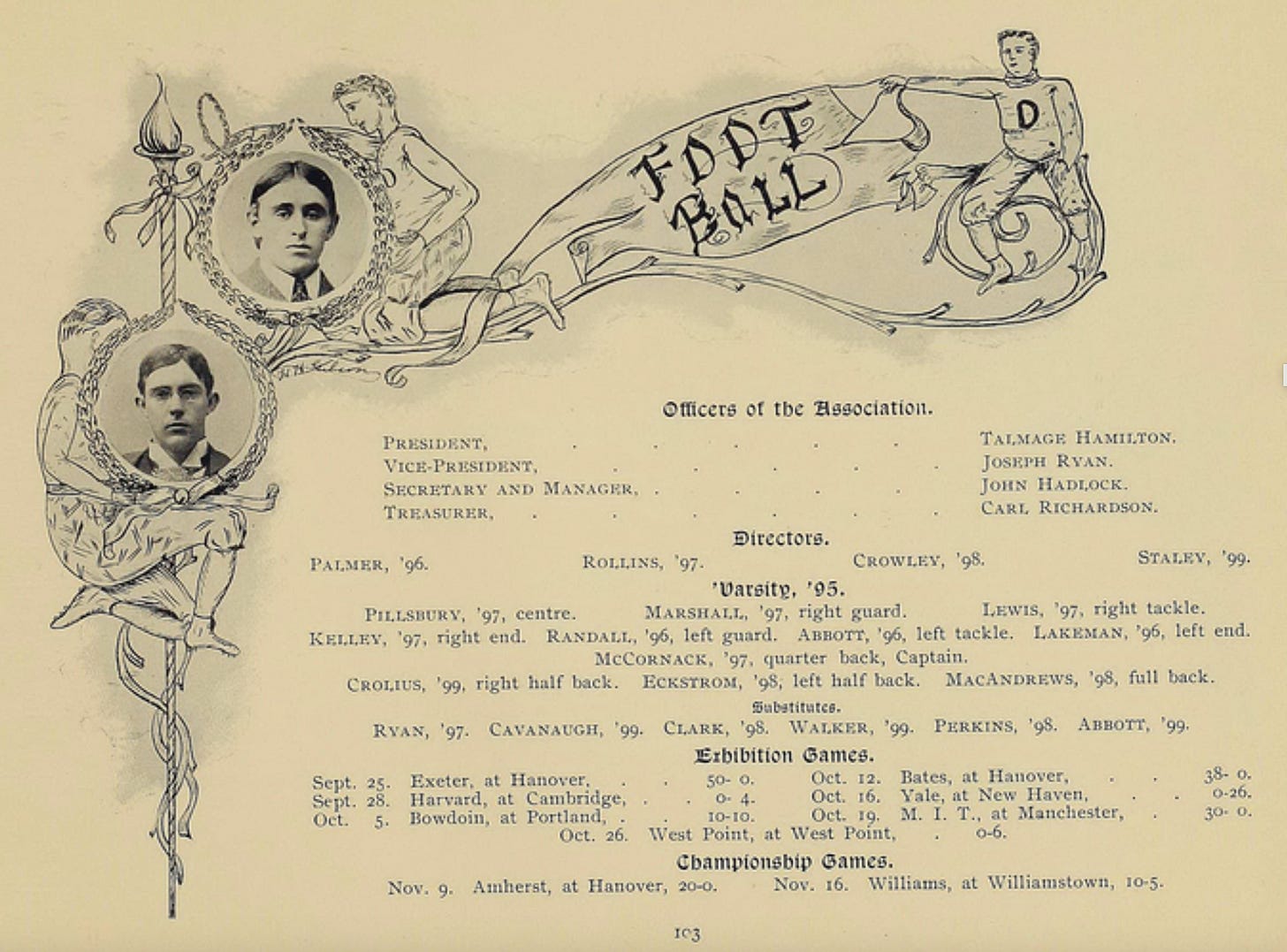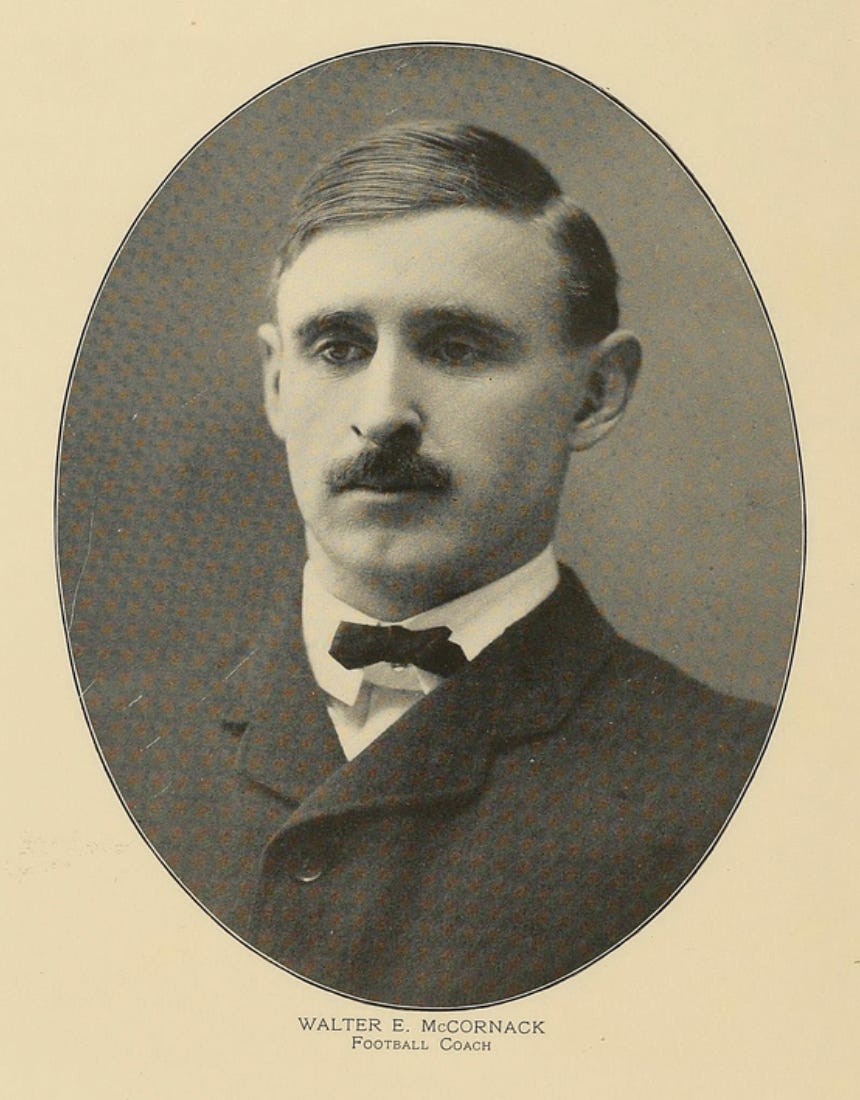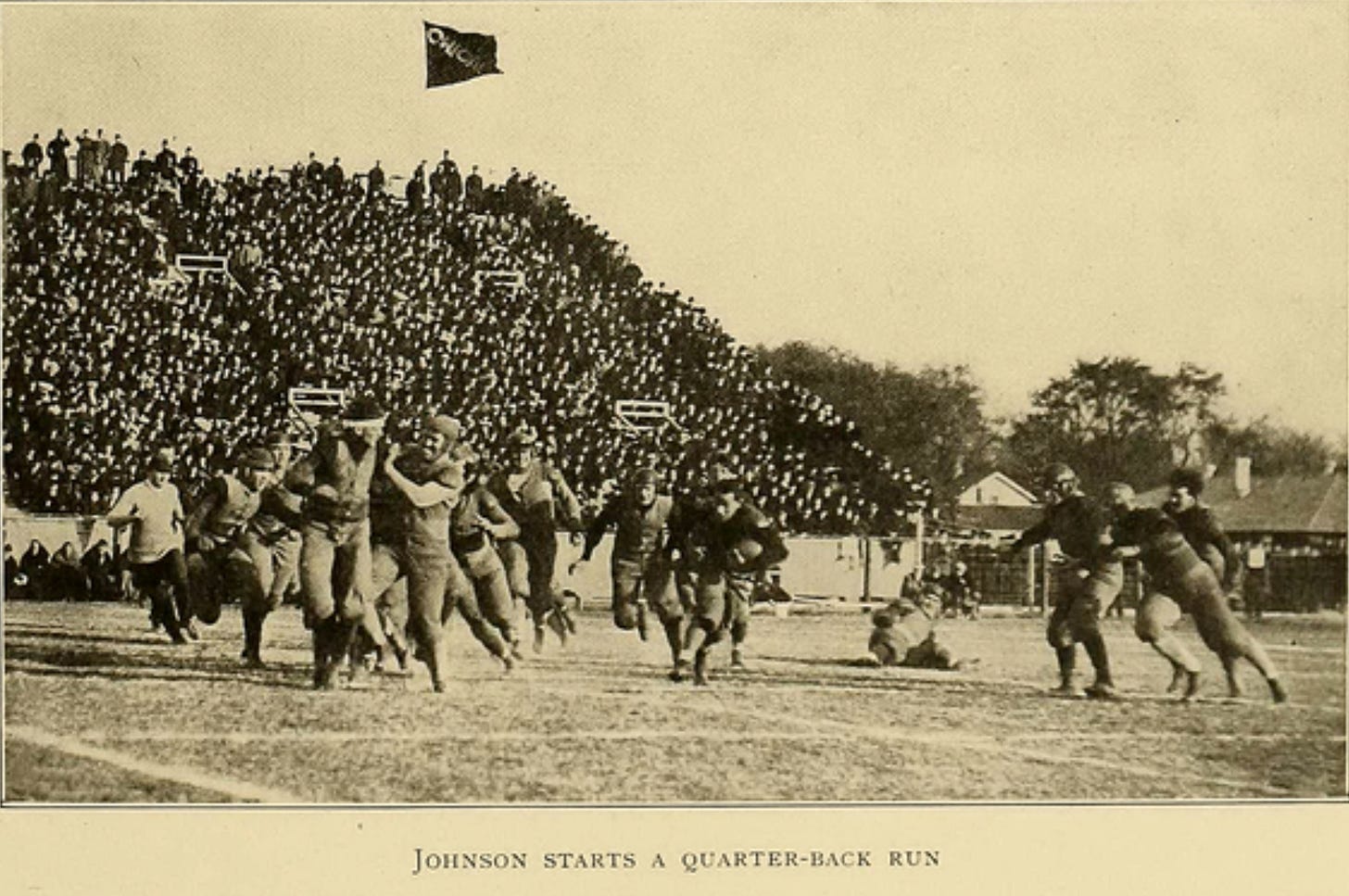Today's Tidbit... 1891 Chicago Englewood and Walter McCornack
High school football in the Chicago area began in the mid-1880s. It became formalized in 1889 with the formation of the Cook County League, which included Chicago Manual, Lake View, Hyde Park, and Englewood. The schools played other schools, one another, and area colleges into the early 1900s and produced solid football talent.
The image below shows the 1891 league champion Englewood High School team, which included three team members who played for Dartmouth over the next few years, most notably Walter McCornack, who captained Englewood and Dartmouth (twice).

McCornack entered Dartmouth in 1893, playing freshman football and varsity baseball. Though only 5' 6" and 140 pounds, he started his sophomore season at quarterback until injuries to a halfback forced him to shift positions. He returned to quarterback for his junior and senior years. While they were sometimes competitive with the other future Ivy teams, they went 0-9-1 against them during his playing days.
At the time, Dartmouth's primary rivals were Williams and Amherst, over whom Dartmouth won the Tricollegiate or Triangular Football League championship three years in a row. As seen in the season summary from the 1897 yearbook, Dartmouth viewed their season as consisting of seven exhibition games followed by two championship games with their rivals.
McCornack was named to Walter Camp's third-team All-American squad in 1896, making him the first Dartmouth player to be recognized by Camp. After graduation, McCornack coached football at Phillips Exeter for four years. He returned to Chicago in the offseason, where he coached as a volunteer, played athletic club baseball, and umpired Western Conference baseball games.
He took over as Dartmouth's head coach in 1901 and 1902, going 10-1 and 6-2-1, losing to Harvard both years and to Amherst in 1901. McCornack then took his coaching game to Chicagoland, where he coached Northwestern to a 10-1-3 record and the Western Conference championship in 1903.
His 1904 and 1905 teams went 8-2-1, losing to strong Chicago and Minnesota in both seasons. Among his innovations was bringing charging machines, later to morph into blocking sleds, to the Midwest along with early versions of the bucking trap, which was patented by his Dartmouth teammate, Fred Folsom. Early in the 1905 season, McCornack announced he would not return to Northwestern for the 1906 season, and, as it turned out, Northwestern dropped football for two seasons due to concerns about football's danger.
McCornack then launched a law career, initially working for the Interstate Commerce Commission before entering private practice and advising clients on interstate commerce matters. For a few years, he refereed Western Conference and other football games and occasionally gave his opinion on football matters. In 1913, McCornack was among the first to call for the extra point to be a play from scrimmage rather than a free kick, a change that occurred in 1922.
After that, McCornack faded from the football conversation and concentrated on work and family before passing away in 1939.
Football Archaeology is reader-supported. Click here to buy one of my books or otherwise support the site.





